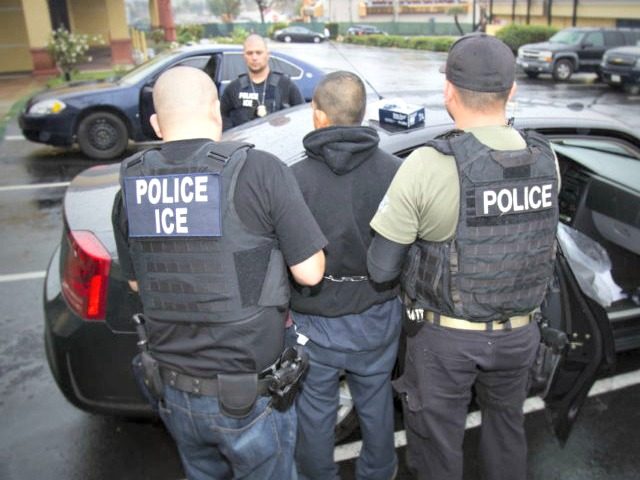Judges are humiliated and dehumanized whenever they must enforce the nation’s immigration laws, according to a senior judge on the far-left Ninth Circuit Court of Appeals.
The judge’s cry of outrage came when he could not block the orderly repatriation of an illegal immigrant who has two drunk driving convictions, plus a U.S. wife and three children.
“We are unable to prevent [Andres] Magana Ortiz’s removal, yet it is contrary to the values of this nation and its legal system,” complained Judge Stephen Reinhardt, who wishes to extend citizens’ rights to illegal foreign migrants. He said:
We are compelled to deny Mr. Magana Ortiz’s request for a stay of removal because we do not have the authority to grant it. We are not, however, compelled to find the government’s action in this case fair or just. …
The government’s decision to remove Magana Ortiz diminishes not only our country but our courts, which are supposedly dedicated to the pursuit of justice. Magana Ortiz and his family are in truth not the only victims. Among the others are judges who, forced to participate in such inhumane acts, suffer a loss of dignity and humanity as well. I concur as a judge, but as a citizen I do not.
The judge, who was appointed — not elected — in 1980 and is married to a former top leader in the ACLU, also lamented the authority of ordinary DHS agents to enforce the law despite protests from well-paid, high-status “civil rights” lawyers:
On January 25, 2017, the President [Donald Trump] signed a series of executive orders dismantling the system of priorities that had previously guided Immigration and Customs Enforcement and Border Patrol in determining whom to deport. The orders also gave far greater authority to individual agents and officers, who are now removing non-citizens simply because they are here illegally, regardless of whether they have committed any offense. In light of the breadth of these orders and the lack of any apparent limit on agents’ discretion, the undocumented must now choose between going to work, school, hospitals, and even court, and the risk of being seized.
In contrast, the new Supreme Court Justice appointed by Trump, Neil Gorsuch, has a more humble vision of his job as a judicial referee, saying in a 2013 award ceremony that:
As my daughters remind me, donning a [judicial] robe doesn’t make me any smarter … It serves as a reminder of what’s expected of us—what [Irish philosopher Edmund] Burke called the “cold neutrality of an impartial judge.” It serves, too, as a reminder of the relatively modest station we’re meant to occupy in a democratic society. In other places, judges wear scarlet and ermine. Here, we’re told to buy our own plain black robes — and I can attest the standard choir outfit at the local uniform supply store is a good deal. Ours is a judiciary of honest black polyester.
The judges on Reinhardt’s Ninth Circuit are expected to release soon a decision blocking Trump’s Executive Orders limiting the entry of people from six terror-prone Muslim countries. The decision is based on a Hawaiian case, in which an Egyptian-born Islamic cleric claimed his constitutional rights were infringed by Trump’s efforts to reduce Islamic jihad in the United States.
The court’s decision may have been delayed by the Islam-inspired bloody attacks in Manchester and London, at least one of which was conducted by the sons of Muslim refugees and migrants from Libya.
Reinhardt’s intemperate language, said Andrew Arthur, a former immigration judge, suggests that the court’s decisions are political biased. “There is no ‘cold neutrality’ in the Ninth Circuit’s ruling,” Arthur wrote about the court’s preliminary ruling in the Hawaii case. “It is personal, visceral, and vindictive.”

COMMENTS
Please let us know if you're having issues with commenting.